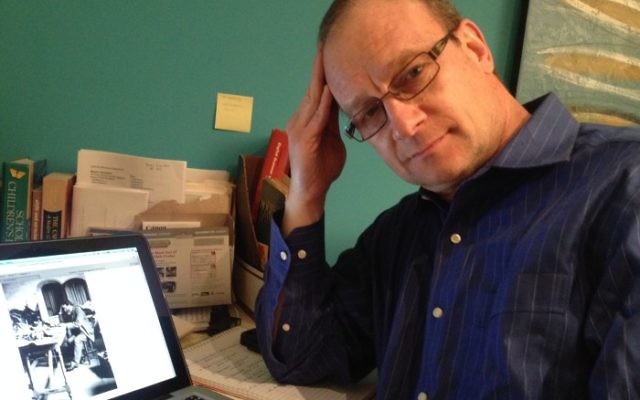History Requires Us Not to Look the Other Way
The Holocaust has been caught up in the debate over teaching uncomfortable subjects.
Dave Schechter is a veteran journalist whose career includes writing and producing reports from Israel and elsewhere in the Middle East.
When I watch documentaries about the 1960s civil rights movement, I take note of the children. Today they may have grandchildren the same age that they were then. I wonder what stories these elders tell.
The FRONTLINE series “American Reckoning” recently focused on the 1967 killing of Wharlest Jackson Sr., treasurer of the NAACP (National Association for the Advancement of Colored People) branch in Natchez, Miss., by a car bomb likely set by Ku Klux Klan members.
In one segment, the late congressman John Lewis tells Jackson’s children how, years earlier, he and other African Americans who attempted to integrate a whites-only bus station waiting room were beaten by men who “left us lying in a pool of blood, and a lot of the people, they knew what was happening, they looked the other way.”
“They knew what was happening, they looked the other way.”
Those words are why it is important to teach such subjects as America’s racial history and the Holocaust.
I was exposed to the Holocaust more during my congregation’s Sunday school than in my Monday-Friday public school education. Even there, though, the attempted extermination of European Jewry was presented — particularly in films — as a precursor to the modern nation of Israel, rather than as a subject from which to draw moral lessons.
The importance of Holocaust education was borne out, yet again, by the Cobb County middle-school boys who walked the hallways wearing armbands with swastikas and making Nazi salutes.
The county school board issued a statement that said: “Several students, after school, made a very poor decision to display hateful and Anti-Semitic imagery while recording themselves on social media. The students will be disciplined according to district policies, and we encourage parents to talk to their students about using social media responsibly.”
The problem is not “a very poor decision . . . while recording themselves on social media.” The problem is not “using social media responsibly.” The problem is the swastika and the salute.
I understand that some of the boys have been meeting with a rabbi. That is good.
Here’s my suggestion for the next time something similar happens (and it will happen): The offenders (and their parents, because education starts at home) should be required to visit the William Breman Jewish Heritage Museum.
They can tour the permanent Holocaust exhibit, then sit with survivors who are part of the Breman’s “Bearing Witness” program and listen to first-person accounts of the horrors wrought by Hitler and the Nazis.
We are in the midst of a national debate over how to teach uncomfortable and divisive subjects, particularly America’s racial history. The point is not to make anyone feel ashamed or guilty, but to understand how these events came about and to recognize what remnants of that history remain part of American life today.
The Holocaust has been caught up in the larger debate. A Jewish legislator in Wyoming objected to a bill that said, “The teaching of history must be neutral, without judgment” and “no one should feel discomfort or distress.”
Rep. Andy Schwartz doubted that Native Americans and African Americans would accept such an approach. “But I’m Jewish, and I cannot accept a neutral judgment-free approach on the murder of six million Jews in World War Two,” Schwartz said. “In learning about the Holocaust, I have suffered a lifetime of discomfort and distress. It is essential that as students learn about this dark time in our history, they do feel discomfort and distress.”
As South Carolina considers similar legislation, the mother of a first-grade student told her local newspaper, “I just want my child to be taught an accurate picture of history, it doesn’t matter if it’s uncomfortable. It doesn’t matter if it’s sad or makes someone feel an emotion, it’s stuff that happened.”
Here in Georgia, Abbie Fuksman, a board member of the Jewish Community Relations Council of Atlanta, and the daughter of Holocaust survivors, cautioned a Senate committee: “When the government tries to erase history because it’s uncomfortable for students to hear — human atrocities, slavery, the Holocaust — we prevent our students from learning true historical context . . . History requires context: the good, the bad, and yes, the ugly.”
Why should uncomfortable and occasionally divisive subjects be taught — with age-appropriate materials — in public (and private) schools?
So that in the future, we do not say: “They knew what was happening, they looked the other way.”




comments